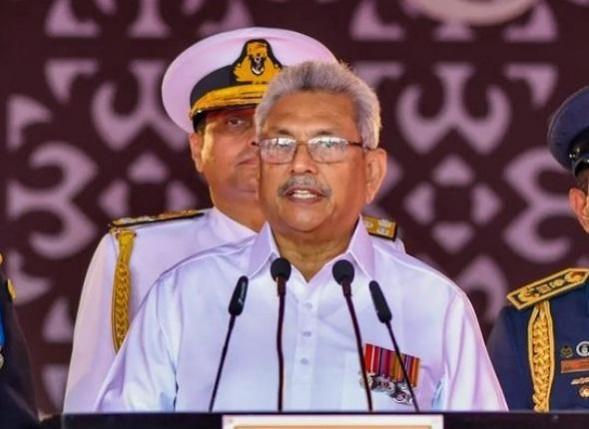Sri Lankan President Gotabaya Rajapaksa fled the presidential palace as protesters stormed it on Saturday, reports said.
The weekend protest rally march to Colombo from around the country was led by religious leaders, political parties, medical practitioners, teachers, civil rights activists, farmers, and fishermen againts President Gotabaya Rajapaksa and Prime Minister Ranil Wickremesinghe.
Earlier, Sri Lankan Police has lifted the curfew that was imposed in seven divisions in the country's Western Province, including Colombo, ahead of planned anti-government protests bowing to the pressure from top lawyers' association, human rights groups and political parties.

"People living in the areas where police curfew had been enforced should strictly limit themselves to their houses and law would be enforced severely against those violating curfew," the Inspector General of Police (IGP) C. D. Wickramaratne said on Friday.
The Bar Association of Sri Lanka called the curfew "illegal and a violation of fundamental rights." "Such curfew is blatantly illegal and a violation of the fundamental rights of the people of our country who are protesting against President Gotabaya Rajapakse and his Government over its failure to protect their basic rights," it said.
They blame President Rajapaksa for the country's economic crisis, the worst since independence in 1948. Sri Lanka, a country of 22 million, is under the grip of an unprecedented economic turmoil due to acute shortage of foreign exchange.

Last week, the PM announced in Parliament that Sri Lanka would present a debt restructuring programme to the IMF by August to secure a bailout but harsh package, because the country was "bankrupt."
Sri Lanka had in April sespended nearly $ 7 billion foreign debt repayment out of about $ 25 billion due through 2026. Sri Lanka's total foreign debt stands at $ 51 billion.
(With inputs from agencies)

















